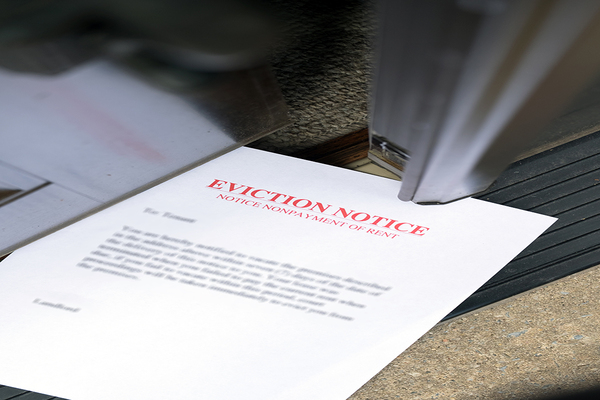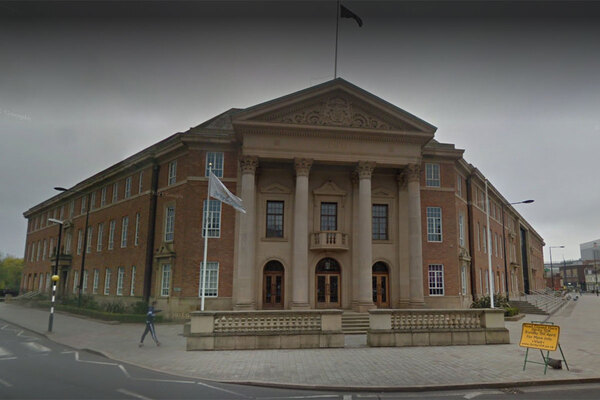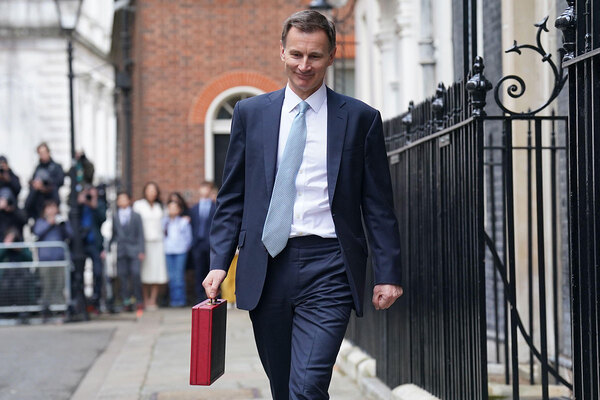You are viewing 1 of your 1 free articles

Evictions ban: where to now?
The ban on possession proceedings in England and Wales has been extended until 20 September. It is important to use the next four weeks wisely to stop evictions leading to a rise in homelessness, explains Dr Lígia Teixeira
Evictions have been suspended since the beginning of lockdown, and on Friday the government announced it would extend the ban until 20 September in an “11th-hour U-turn”.
The extension is a welcome development and shows the government followed the data. In the absence of a clear, evidence-informed plan that addresses the root causes, and that targets efforts and resources effectively at those most vulnerable to homelessness – such as those living in poverty or fleeing domestic violence – it would have been unwise to stop the ban.
But there is no denying the fact that by extending it by just four weeks, the government has set itself a very tough challenge.
The question of how many people are likely to be affected when the eviction ban ends is hotly contested. Yet we do know for a fact that at least 18,000 households across England have become legally homeless during the pandemic despite the nationwide ban on evictions, according to a report in the New Statesman based on Freedom Of Information Act requests. Those numbers include evicted tenants and lodgers, as well as people in short-term accommodation, rough sleepers and victims of domestic abuse.
So it will be very important to use the next four weeks wisely.
As a what works centre that is politically neutral and whose only concern is to ensure we do the most good possible with resources available, we stand ready to help the government and others in the homelessness system, to make sure that by 20 September, a sound plan is in place.
Current evidence suggests that an evidence-informed plan needs to do three things:
- Improve how the private rented sector works for people at the bottom of the market. This will require legislation and must be prioritised. Let’s not delay fulfilling the Conservative Party’s manifesto commitment to abolish no-fault evictions – or legislate, so that judges have greater discretion. It is also right that the most egregious cases, for example those involving anti-social behaviour or domestic abuse perpetrators, begin to be heard in court again. And let’s not forget that landlord behaviour – in the form of assured shorthold tenancies – continues to be a leading driver of statutory homelessness in London and the South East, through the ending of assured shorthold tenancies (60,000 cases in 2019). Experiments such as the ones we’re currently undertaking with The Behavioural Insights Team and the National Residential Landlords Association can help to work out what works to foster effective landlord/tenant relationships.
- Fix the wider housing market. The changes to England’s planning system could be a real opportunity if implemented well. This will require dedicated investment on the creation of genuinely affordable homes in the right places. And greater experimentation at local level could also help target limited resources more effectively while improving outcomes. For instance, evidence shows that most people affected by homelessness not only don’t need an emergency housing stay, but that no intervention at all may be better than traditional crisis accommodation. Our analysis also suggests that replacing just 5% of current NPPMA/B&B use in London – eg by moving people to other accommodation types – could generate a net saving of just under £50m over a five-year timescale.
- And if we’re serious about acting on rigorous evidence and ending homelessness for good, financial support must be available to those who need it – both tenants or landlords. We also need to experiment to ensure we find out what works for different groups, and acknowledge those in disadvantaged areas may need more support than your average renter or landlord. And housing benefits for private renters in areas such as London and the South East may need a boost, while access to emergency financial support and legal aid must be straightforward.
Both tenants and landlords would probably also benefit from an extension of the government furlough scheme, which is due to end in October. Our forthcoming policy paper on employment will include lots of tips on the types of interventions that work in this space.
So, a month doesn’t seem like a very long time, but ultimately quality is more important than quantity.
By the time the ban does end, we would like to see a robust, data-driven action plan for when the ban does lift that is ready to be implemented and evaluated. The priority needs to be to improve the effectiveness and cost-effectiveness of the system in the longer term.
Dr Lígia Teixeira, chief executive, Centre for Homelessness Impact









